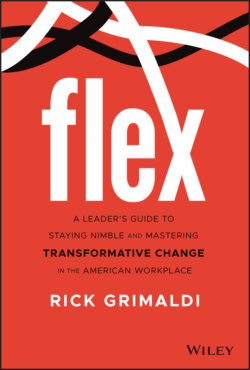Читать книгу FLEX - Rick Grimaldi - Страница 18
It's Getting Hotter
ОглавлениеYou'd have to be living under a rock in 2020 if you've missed the global discussion on our earth's changing climate. And, although many still want to debate whether these represent normal fluctuations in warming, as Swedish-born activist Greta Thunberg says, “Don't listen to me; listen to the scientists.”
It's undeniable that summers will grow longer, wildfires will become more common, and sea levels will continue to rise. In the United States specifically, climate forecasters anticipate shorter winters and longer summers in the Northeast with a decline in species that support important fisheries. They expect higher health risks due to food from contaminated waters in New England's rivers, canals, and coasts.15
More than half of major cities in the Southeast are experiencing worsening heat waves. In the Midwest, a rise in climate-related ground-level ozone is expected to cause an avalanche of premature deaths. Expect more lung disease and higher rates of illness for the elderly, too. More than a quarter of US agriculture comes from this region, but the higher temperatures will likely also mean declining crop yields.16
Droughts and wildfires in California and the Southwest means forests there are emitting more carbon into the atmosphere than they used. And these greenhouse gas emissions predict a tripling of the number of large wildfires. Meanwhile, ocean waters will warm California coastal waters between 4°F and 7°F by 2100.
In the Northwest, these greenhouse gas emissions will likely cause winter warming, decimating fish populations and closing fisheries. Mountain snowpacks will melt increasing wildfires. Alaska is actually warming faster than any other state.17
And so it goes. On and on. What does it all mean?
Aside from the very real and imminent toll that these conditions will have on humans as a species, the effect of climate change on the business world is potentially immeasurable. And yet, emissions fell in China by 25% with the COVID-19 lockdown there. Pollution in New York City was down by 50% due to its containment measures.18
Is it possible the world can rally long term, as it seemingly did during the pandemic, when threats feel less urgent? Even if we somehow come together soon as one people to address our carbon emissions effectively—to stop or reverse climate change—it's undeniable that much damage has already been done. Sea levels will continue to rise, which will crowd out the populations in low-lying areas that will flood.
But aside from fundamentally changing the way we live, climate change will also change how we do business and engage in commerce. Just as COVID-19 brought once unthinkable new realities to daily life—such as mask wearing in public and possibly the end of the hand shake—so, too, will climate change affect the energy we use, the materials we build with, and how we invest. It will also give rise to new industries and ultimately a green economy . . . all important ways that the world of work is changing.
As blogger and technology evangelist Robert Scoble once noted, “Change is inevitable, and the disruption it causes often brings both inconvenience and opportunity.”19 As you will see, history is replete with organizations that failed to see change as a chance to evolve. It's also full of visionary organizations that fought back their fears to seize new opportunity.
Those who continue to do business as usual despite the storm of change will become disrupted. They will fade into obscurity as savvy new organizations—disruptors—take their place . . . winning over the customers and employees of those other companies with a responsive new approach to the world around them.
Companies that flex own the future, as you will see.
